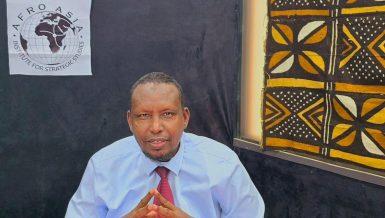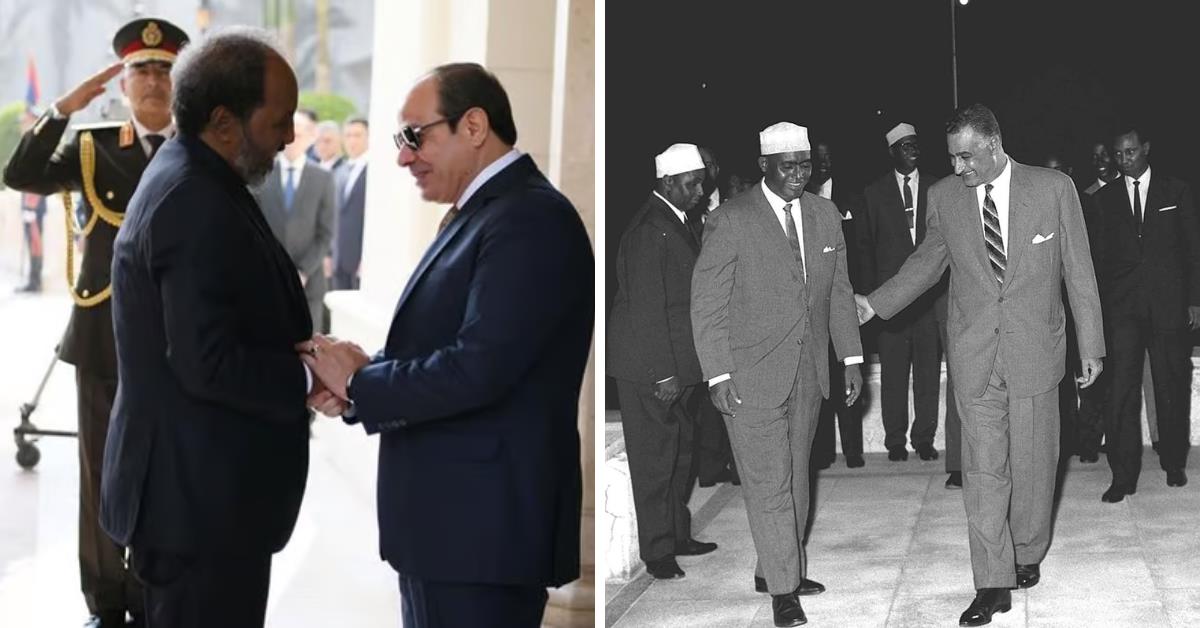
Egypt-Somalia Enduring Ties: A History Of Support And Cooperation
Today, the two countries enjoy strong bilateral relations, cemented by recent agreements and pronouncements. In a significant display of solidarity, Egyptian President Abdel Fattah Al-Sisi and Somalia's President Hassan Sheikh Mohamud witnessed the signing of a defence pact and military cooperation protocol in Cairo. During the visit, President Al-Sisi also reaffirmed Egypt's support for Somali unity and sovereignty, rejecting any interference in its internal affairs.
On the economic front, Egyptian Prime Minister Mostafa Madbouly met with Somali Prime Minister Hamza Abdi Barre in Cairo to discuss areas of mutual interest and strengthen bilateral relations. Madbouly highlighted Egypt's commitment to providing all necessary support to Somalia, including economic, trade, and investment relations.“We are ready to export any goods or commodities that Somalia needs,” he said.“We will make every effort to facilitate the entry of these goods and commodities to meet the needs of the Somali people.”

Abdiwahab Sheikh Abdisamad
Egypt-Somalia relations have a long history, dating back to Somalia's pre-independence era. Egypt's influence in Somalia, particularly through education, culture, religious ties and diplomacy, has been crucial, Somali political analyst and the Founder and Executive Director of the Afro-Asian Institute of Strategic Studies Abdiwahab Sheikh Abdisamad told Daily News Egypt.
“Recently, Egypt's renewed engagement in Somalia, including security cooperation due to shared national security threats, signals a desire to restore its former strength. This rekindling of ties is a natural extension of historical ties and could strengthen regional stability and mutual growth,” he added.
The history of Egypt's unwavering support for Somalia dates back to the country's road to independence. In 1946, after the defeat of Mussolini's regime in World War II, the United Nations General Assembly began discussing the future of Somalia. They ultimately decided to put the country under Italian guardianship in 1950, with an advisory council comprising Egypt, Colombia, and the Philippines. The council's mission was to supervise the administrative system in Somalia and ensure its independence by 1960.
Egypt's former President Gamal Abdel Nasser saw Somalia's independence as a key element of his pan-African policy, which aimed to fight colonialism in the Arab and Asian worlds. He was motivated by securing Egypt's strategic interests in the region and opening economic cooperation with African nations. His commitment to the Non-Aligned Movement was a testament to this ideology.
Nasser actively worked to support the Somali national movement. He provided political advice and helped Somalis counter efforts to delay the handover of power to nationalists. To further strengthen Egypt's role in the advisory council, the Egyptian government appointed Kamal Al Din Salah as a delegate. This appointment marked a significant turning point in Egypt's engagement with Somalia.
Salah presented a note to the Egyptian Ministry of Foreign Affairs, demanding the establishment of an Egyptian consulate in Somalia. At this time, Italy was slowing down the process of transferring authority to the Somalis, hindering their ability to form an administration and parliamentary representation. Nasser instructed his delegate to concentrate on preparing the Somalis for independence.
Nasser also sent about 25 Egyptian teachers to Somalia, along with eight teachers from Al Azhar. He accepted 150 Somali students to study at various Egyptian institutions without any fees. Nasser strongly believed in the power of education, promising to assist Somalis in establishing new schools, cultural institutions, and religious centres under the supervision of Al Azhar University.
Numerous scientific missions were sent to Somalia. An Egyptian cultural missionary visited cultural institutions in Mogadishu and Hargeisa. The Egyptian Ministry of Education celebrated the opening of the first secondary school in Mogadishu, established with the assistance of Egyptian educators.
Egypt also played a vital role in supporting the fledgling Somali army. When Somalia sought weapons to equip its forces, its Prime Minister at the time, Abdel Rashid Al Sharmaky, travelled to European countries but failed to secure any arms deals. He then stopped in Cairo, where he discussed the matter with Nasser. Al Sharmaky later described this meeting as a turning point in Somali history, as Nasser not only provided weapons but also decided to share Egyptian arms with Somalia.
Nasser gifted Somalia light arms for 5,000 soldiers, along with armoured cars, and two aircraft to form the foundation of the Somali air force.
Following Somalia's independence, Nasser's support continued, with the extension of military aid, as he continued to supply arms to the newly formed Somali Republic.
Today, the two nations continue to cooperate across various sectors, from defence and security to trade and investment. This enduring relationship, rooted in a shared history of mutual respect and support, stands as a testament to the strong bonds between Egypt and Somalia.

Legal Disclaimer:
MENAFN provides the
information “as is” without warranty of any kind. We do not accept
any responsibility or liability for the accuracy, content, images,
videos, licenses, completeness, legality, or reliability of the information
contained in this article. If you have any complaints or copyright
issues related to this article, kindly contact the provider above.

















Comments
No comment